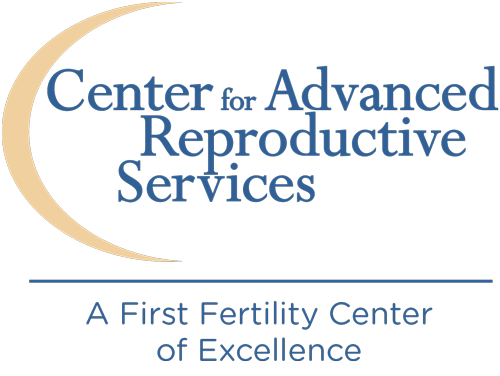- Why Choose Us
Success Stories
Our Facilities
Academics/Research
- Start Your Journey
- Family Building Programs
Integrated Health & Wellness
- News & Video
Video Library
News + Events
Contact Us
- Patient Portal
Online Payments
- For Physicians
The Center for Advanced Reproductive Services is a part of the First Fertility family of centers. Learn More About The Center.
In Vitro Fertilization
Many who have fertility problems have been able to conceive a child through the use of In Vitro Fertilization (IVF). At The Center, the In Vitro Fertilization Program treats individuals and couples whose fertility has been impaired by conditions such as tubal problems, endometriosis, male factor infertility, unexplained infertility, and for those who have experienced failed IVF procedures in the past.
IVF Procedures We Offer
The In Vitro Fertilization program at The Center provides comprehensive care to those requiring traditional IVF, as well as ancillary procedures such as intracytoplasmic sperm injection (ICSI), assisted hatching and embryo cryopreservation.
Our IVF Success Rates
We began offering IVF in CT in 1985. Today, our IVF success rates are above the national average – among the highest in the country.
We are an active member of the Society for Assisted Reproductive Technologies (SART) under the auspices of the American Society for Reproductive Medicine.
Our Reproductive Endocrinology and Infertility Laboratory meets the standard requirements of the Clinical Laboratory Improvement Act (CLIA) and is accredited by the College of American Pathologists (CAP).
What Is In Vitro Fertilization?
In Vitro Fertilization is a process where eggs are fertilized outside the body in a specialized laboratory.
During the IVF process, several medications are taken to develop multiple ovarian follicles containing mature eggs capable of fertilization. We closely monitor this process using blood tests and vaginal ultrasounds.
Mature eggs are retrieved through a simple procedure under ultrasound guidance. We then expose the retrieved eggs to sperm, select the best embryos and transfer those embryos into the uterus.
How Does Intracytoplasmic Sperm Injection (ICSI) Work?
ICSI, or assisted fertilization, is a fertility procedure that has dramatically improved the treatment of severe male factor infertility. A relatively common cause of infertility in couples is a low sperm count. With ICSI, a single sperm can be injected into the egg, significantly improving the likelihood of fertilization. This process is used in conjunction with IVF.
Assisted Hatching in IVF
Assisted hatching is another laboratory procedure that enhances pregnancy rates in certain IVF treatments. In this procedure, a small opening is made in the shell surrounding the embryo just prior to transferring the embryo into the uterus.
The assisted hatching procedure increases the likelihood that the embryo will implant into the uterine wall, resulting in a successful pregnancy.
Learn More about IVF
To make an appointment or for more information about our In Vitro Fertilization Program and our full range of fertility services, please call The Center for Advanced Reproductive Services at (844) HOPEIVF.
For more information about IVF success rates at The Center, please click here.


